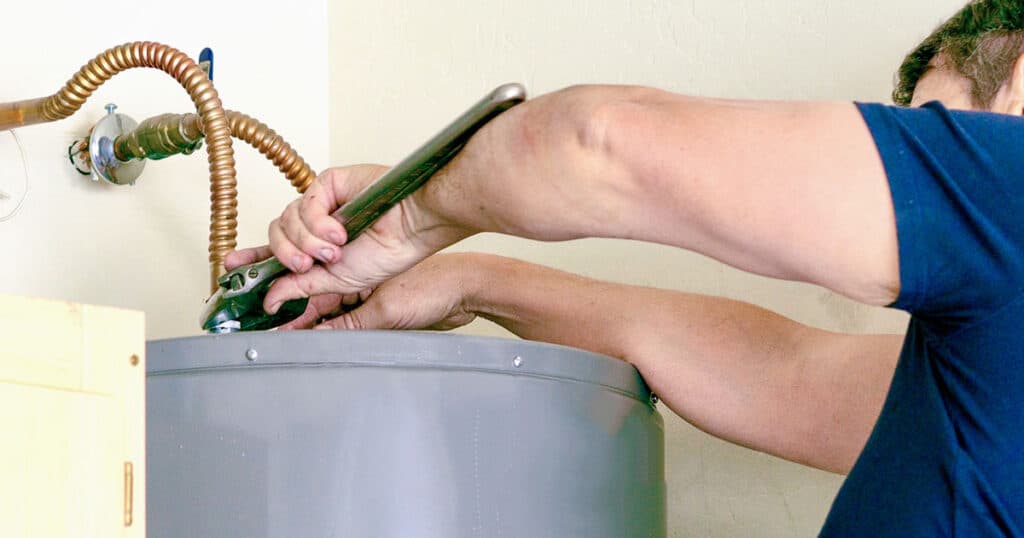
Signs Your Water Heater Needs Repair or Replacement
A functional water heater is an unsung hero in every household, providing us with the luxury of hot showers, clean dishes, and warm laundry. However, like all appliances, water heaters have a definitive lifespan and can encounter issues over time. Recognizing the signs that your water heater needs attention can save you from potential water damage, inconvenience, and even increased energy bills. Here are the telltale signs to look for, and advice on how to decide whether to repair or replace it.
Top Signs You Need Water Heater Maintenance
1. Age of the Water Heater
The age of your water heater can be a significant factor in its performance and efficiency. Typically, a traditional tank-style water heater has a lifespan of 8 to 12 years, while tankless water heaters can last up to 20 years with proper maintenance. If your water heater is approaching or has surpassed its expected lifespan, it might be time to consider repairs or replacement.
2. Rusty or Discolored Water
If you notice rusty or discolored water coming from your hot water taps, it could indicate corrosion inside the water heater tank. This is a clear sign that the interior of your water heater is deteriorating and may need to be addressed immediately to prevent leaks and further damage.
3. Inconsistent or No Hot Water
An insufficient amount of hot water or fluctuating water temperatures can be a sign of various issues, such as a faulty heating element, sediment buildup, or a malfunctioning thermostat. If you are experiencing inconsistent hot water supply or no hot water at all, it is a clear indication that your water heater requires attention.
4. Strange Noises
Over time, sediment can accumulate at the bottom of the water heater tank, causing it to make popping, rumbling, or banging noises during heating cycles. These noises are not only annoying but also a sign that your water heater is inefficient and may need to be flushed to remove the sediment.
5. Leaks Around the Water Heater
If you notice water pooling around the base of your water heater or signs of moisture and corrosion on the tank, it is a clear indication of a leak. Leaks can cause significant water damage to your home and should be addressed immediately to prevent further damage and potential mold growth.

Repair or Replace Your Water Heater? Factors to Consider
Once you have identified that your water heater is experiencing issues, the next step is to determine whether to repair or replace it. Here are some factors to consider:
1. Age of the Water Heater
As mentioned earlier, the age of your water heater is a crucial factor in deciding whether to repair or replace it. If your water heater is nearing the end of its lifespan and requires frequent repairs, it may be more cost-effective in the long run to replace it with a newer, more energy-efficient model.
2. Extent of Damage
Minor issues such as a faulty heating element, thermostat, or sediment buildup can often be repaired relatively inexpensively. However, if the water heater is leaking, corroded, or has a cracked tank, it may be more cost-effective to replace the unit rather than investing in extensive repairs.
3. Energy Efficiency
Older water heaters tend to be less energy-efficient compared to newer models. If your water heater is over 10 years old, replacing it with a high-efficiency model can result in significant energy savings over time, offsetting the initial cost of replacement.
4. Cost of Repairs vs. Replacement
When deciding between repairing or replacing your water heater, consider the cost of repairs versus the cost of a new unit. If the cost of repairs is approaching 50% of the cost of a new water heater, it is often more economical to replace the unit rather than investing in repairs.
5. Maintenance and Warranty
Regular maintenance can prolong the lifespan of your water heater and help prevent costly repairs. If your water heater is still under warranty, repairs or replacement parts may be covered, reducing the overall cost of repairs.
Not Sure? Call Best Care to Speak to an Expert
A malfunctioning water heater can disrupt your daily routine and lead to increased energy bills and potential water damage. By recognizing the signs that your water heater needs attention and knowing when to repair or replace it, you can ensure that your household continues to enjoy the comfort and convenience of hot water without unnecessary expenses and inconvenience.
If you are experiencing any of the signs mentioned above or are unsure about the condition of your water heater, call Best Care Home Services at 901-624-1401 or Schedule an Appointment. We’ll give you expert advice, perform a thorough inspection, and recommend the most cost-effective solution to address your water heater issues.
Remember, proactive maintenance and timely repairs or replacement can save you money in the long run and ensure the efficient and reliable operation of your water heater for years to come.
Recent Posts
Top 7 Generac Generator Error Codes and What They Mean
If you own a Generac home standby generator, you may eventually see a fault code on the controller screen—often accompanied by a red...
What Does the Generac Generator Red Light Mean? 5 Top Reasons
If your Generac home standby generator has a red light on the control panel, it’s a clear signal that something is wrong—and your...
What is the Generac Error Code 2800?
If your Generac home standby generator is displaying Error Code 2800, it’s signaling an auxiliary shutdown condition. This typically means an external emergency...



